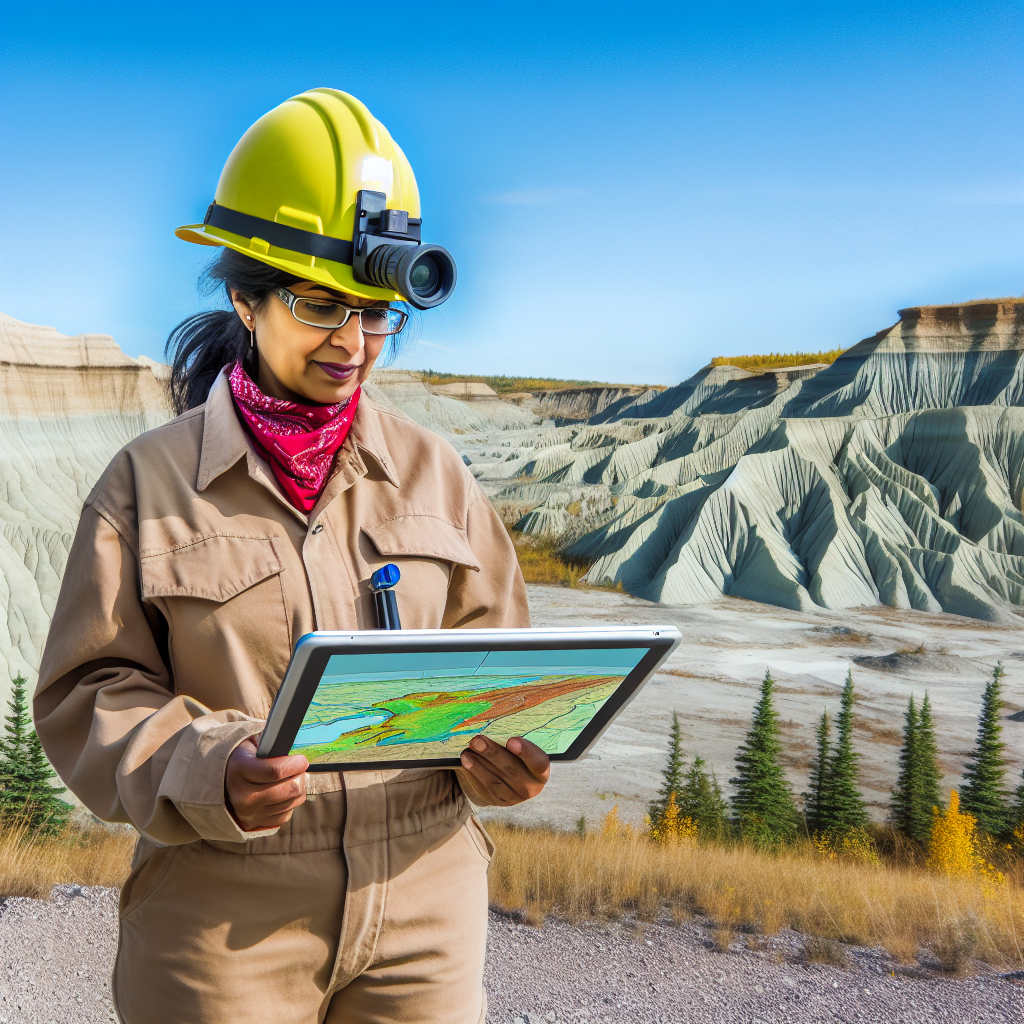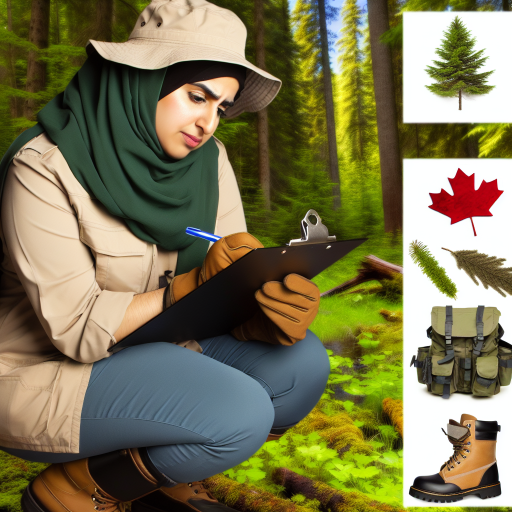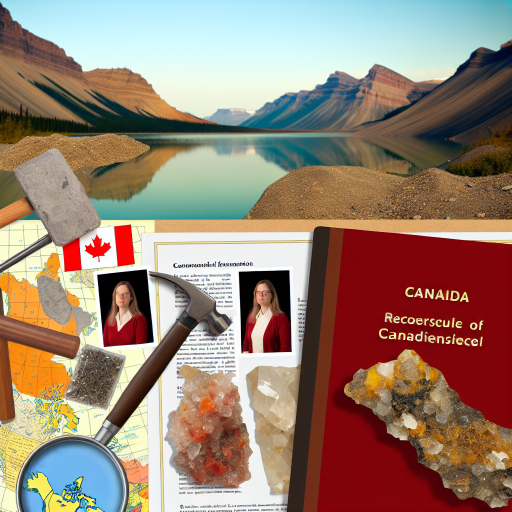Understanding the Basics of Geology
Key Concepts in Geology
Geology focuses on the Earth’s structure and substances.
It studies the processes that shape our planet.
Understanding rocks, minerals, and fossils is fundamental.
Geologists investigate how these materials interact over time.
This field combines natural sciences and earth sciences.
Important disciplines include mineralogy, petrology, and paleontology.
Sub-Fields of Geology
Geology comprises various specialized branches.
These sub-fields explore specific aspects of Earth and its systems.
- Geophysics studies the physical properties of the Earth.
- Geochemistry examines chemical compositions and processes.
- Environmental geology focuses on human interactions with the Earth.
Each field offers unique insights and applications.
For example, environmental geologists assess pollution risks.
The Role of Geology in Society
Geology plays a crucial role in resource management.
It helps locate minerals, fossil fuels, and water resources.
Geologists also contribute to assessing natural hazards.
Understanding tectonic movements aids in earthquake predictions.
Moreover, geology informs land-use planning and conservation efforts.
Importance of Geological Research
Research in geology fosters advancements in technology and safety.
Geological studies lead to better construction practices.
They also improve disaster preparedness and response strategies.
Innovations in geology can enhance environmental sustainability.
Researchers often collaborate on global geological issues.
This teamwork leads to more comprehensive solutions.
Identifying and Accessing Geology Networking Events and Conferences
Understanding the Importance of Networking
Networking is a crucial part of building a geology career.
It helps you connect with industry professionals and peers.
Furthermore, networking opens up job opportunities and collaborations.
Finding Geology Events
Start by exploring professional organizations like the Geological Society of America.
Unlock Your Career Potential
Visualize a clear path to success with our tailored Career Consulting service. Personalized insights in just 1-3 days.
Get StartedMany associations host annual conferences and workshops.
Additionally, university geology departments often organize events for students.
Online platforms like Meetup and Eventbrite list relevant geology events.
Attending Conferences
Conferences provide excellent networking opportunities.
Prepare by researching the event schedule in advance.
Identify key speakers and sessions that align with your interests.
Most importantly, approach others and introduce yourself during breaks.
Making Connections at Events
Prepare a concise personal introduction to use during networking.
Exchange contact information with new acquaintances to stay connected.
Consider following up with an email post-event to strengthen relationships.
Also, be active on social media, particularly LinkedIn, to continue conversations.
Engaging in Online Networking
Online forums and social media groups are great for networking, too.
Join groups focused on geology discussions and share your insights.
Engage with others by commenting on posts and sharing relevant articles.
Moreover, attend virtual conferences to meet professionals from around the globe.
Volunteering and Internships
Volunteering can create invaluable networking opportunities.
Many organizations seek volunteers for fieldwork and educational events.
Internships also provide hands-on experience while expanding your network.
Connect with coworkers at internships for future job opportunities.
Leveraging Social Media for Professional Networking in Geology
Identifying Relevant Platforms
Many social media platforms cater to geology professionals.
Facebook hosts groups focused on geology and earth sciences.
LinkedIn serves as a significant hub for professional networking.
Twitter allows users to follow leading geologists and organizations.
Instagram enables sharing visually stimulating geology content.
Building a Strong Online Profile
Create a professional profile that highlights your expertise.
Include a clear profile picture to enhance credibility.
Write a compelling summary that outlines your background.
Showcase your skills and projects in a portfolio section.
Connect your social media accounts for cross-promotion.
Engaging with the Community
Participate actively in discussions and forums related to geology.
Comment on posts to add value and showcase your knowledge.
Share relevant articles and updates to keep your network informed.
Attend virtual events and webinars to expand your reach.
Consider collaborating with fellow geologists on projects.
Utilizing Hashtags for Greater Visibility
Use specific hashtags to reach a broader audience.
Incorporate popular geology-related tags in your posts.
Research trending hashtags to enhance engagement.
Follow hashtags to stay updated on current discussions.
Create a unique hashtag for your own projects or initiatives.
Networking Strategically
Initiate connections with fellow geology enthusiasts and professionals.
Send personalized messages when requesting connections.
Follow up with contacts after events or discussions.
Build relationships by offering help or insights.
Regularly update your network about your career milestones.
Evaluating Your Online Impact
Monitor engagement metrics to assess your social media activity.
Track the growth of your professional network over time.
Solicit feedback from peers to improve your presence.
Adjust your strategy based on what resonates with your audience.
Consistently seek new ways to enhance your online influence.
Uncover the Details: Tools and Technology Every Ecologist Should Know
Building Relationships with Professors and Mentors in Geology
Importance of Networking
Networking plays a crucial role in building a successful career in geology.
Strong relationships lead to greater opportunities and insights within the field.
Additionally, mentors can provide invaluable guidance during your educational journey.
Engaging with Professors
Start by actively participating in your geology classes.
Ask questions that demonstrate your interest and curiosity.
Follow up after lectures with thoughtful emails about topics of interest.
Consider attending office hours to engage further with your professors.
This time allows for deeper discussions about geology and career paths.
Participating in Research
Get involved in research projects offered by your department.
Research experience enhances your understanding of geology’s practical applications.
Moreover, working closely with professors can strengthen your relationships.
Through research, you can also gain insights into their professional networks.
Utilizing Professional Conferences
Attend geology conferences and workshops to meet professionals in the field.
Conferences offer a platform for networking and sharing research findings.
Engage with speakers and attendees to expand your connections.
Don’t hesitate to introduce yourself and express your interests.
Leveraging Online Platforms
Connect with professors and industry professionals on LinkedIn.
Share articles and updates related to geology to spark conversations.
Additionally, join geology-related groups for discussions and networking opportunities.
These platforms can enhance your visibility and professional presence.
Building a Supportive Community
Seek support from peers and colleagues in your geology program.
Study groups can foster relationships and enhance learning experiences.
Furthermore, collaborate on projects to build camaraderie and teamwork skills.
A strong community of fellow students can also provide mutual support.
Find Out More: Career Pathways for Aspiring Epidemiologists
Joining Professional Organizations and Societies in Geology
Importance of Networking
Networking is essential for career advancement in geology.
It creates opportunities for collaboration, job searching, and mentorship.
Moreover, associations offer access to exclusive resources and events.
Connecting with other professionals can expand your knowledge base.
Additionally, networking can lead to internships and job offers.
Choosing the Right Organizations
Select organizations that align with your career goals.
Academic societies often provide research opportunities and funding.
Industry associations can offer job boards and professional development.
Consider local geological societies for community engagement.
Evaluate the benefits each organization offers to its members.
Getting Involved
Joining committees and volunteer groups is a great way to start.
Offer your skills in organizing events or outreach programs.
Attend conferences to meet professionals in your field.
Participate in workshops and training sessions to enhance your skills.
Engaging in discussions and forums can showcase your expertise.
Building Relationships
Follow up with the contacts you meet at events.
Share your interests and career aspirations openly.
Maintain relationships through social media and professional platforms.
Join online groups related to geology to broaden your network.
Regularly reach out to your contacts to stay connected.
Leveraging Professional Development
Many organizations offer resources for continuing education.
Take advantage of webinars, seminars, and certification programs.
These opportunities often enhance your resume significantly.
Moreover, they can open doors within specialized fields.
Be proactive in seeking out these professional development activities.
Participating in Conferences
Conferences are invaluable for networking and learning.
Presenting your research can establish you as a thought leader.
Engage with speakers and attendees during networking events.
Collect business cards and connect on LinkedIn afterward.
Consider attending different conferences to diversify your network.
Gain More Insights: Tools and Technologies Epidemiologists Use

Volunteer Opportunities: Gaining Experience and Connections
Understanding the Importance of Volunteering
Volunteering is a powerful way to gain hands-on experience in geology.
It allows you to build meaningful connections within the industry.
Additionally, it can significantly enhance your resume.
Employers often look for candidates with real-world experience.
Finding Volunteer Positions
Research local geological surveys and organizations.
Many offer volunteer opportunities for aspiring geologists.
Explore non-profits focused on environmental conservation.
These organizations frequently need volunteer support for various projects.
Check university geology departments for outreach programs.
Types of Volunteer Work Available
Fieldwork is a common area for volunteering in geology.
This can include collecting samples and conducting surveys.
Labs often seek volunteers for research assistance.
Engagement in educational programs can also be beneficial.
Consider leading or assisting with workshops and events.
Building a Network Through Volunteering
Networking is crucial in the geology field.
Meet professionals and fellow volunteers during events.
Participate actively to make lasting impressions.
Follow up with contacts to establish relationships.
Attend industry functions where volunteers gather.
Gaining Skills and Knowledge
Volunteering provides practical skills critical for your career.
Develop technical skills relevant to your area of interest.
Learn about the latest technologies used in geology.
Volunteer programs often include training sessions.
Make the most of these opportunities to expand your knowledge.
Find Out More: Impact of Epidemiologists on Healthcare Systems
Creating a Strong Resume and Online Presence for Geologists
Crafting an Effective Resume
Start by choosing a clean and professional resume format.
Ensure your name appears prominently at the top.
Include contact information, such as your phone number and email.
Highlight your education in geology clearly and concisely.
List relevant coursework and any degrees obtained.
Next, emphasize your practical experience in the field.
Include internships, research projects, and fieldwork undertaken.
Be specific about your roles and contributions in these positions.
Utilize action verbs to describe your achievements effectively.
For instance, use words like “analyzed” or “conducted.”
Finally, tailor your resume for each position you apply to.
Focus on the skills and experiences most relevant to the job.
Enhancing Your Online Presence
Begin by creating a professional LinkedIn profile.
Use a clear and professional photo for your profile.
Write a compelling summary that highlights your strengths.
Make connections with fellow geologists and industry professionals.
Engage with relevant discussions and share pertinent articles.
Next, consider starting a personal website or blog.
This platform can showcase your work and insights into geology.
Share your research, projects, and thoughts on industry trends.
Additionally, engage with online geology communities.
Participate in forums and social media groups focused on the subject.
Building relationships in these spaces can expand your network.
Utilizing Professional Organizations
Join organizations related to geology, such as the Geological Society of America.
These groups often provide networking opportunities.
Attend conferences and workshops to meet industry leaders.
Consider volunteering for committees to gain visibility.
This involvement can lead to valuable connections.
Look for mentorship opportunities through these organizations.
A mentor can provide guidance on career advancement.
Networking Effectively
Always approach networking with a genuine interest in others.
Ask questions and listen actively to build rapport.
Follow up after meeting new contacts to strengthen relationships.
Send personalized messages expressing your appreciation.
Participate in local geology events and field trips.
These settings allow for informal interactions and learning.
Don’t be afraid to reach out to professionals for informational interviews.
Many are willing to share their insights and experiences.
Networking is a reciprocal process; be ready to offer your assistance.
Provide support or share resources whenever possible.
Tips for Informational Interviews and Networking Etiquette in Geology
Preparing for Informational Interviews
Start by identifying professionals in the geology field.
Use platforms like LinkedIn to find potential contacts.
Research their background and expertise before reaching out.
This will help you ask informed questions during the interview.
Crafting Your Outreach Message
Your initial message should be concise and respectful.
Introduce yourself and explain your interest in geology.
Clearly state why you want to connect with them.
Be specific about what you hope to learn from the conversation.
Conducting the Informational Interview
Prepare a list of open-ended questions to encourage dialogue.
Ask about their career path and experiences in geology.
Listen actively and take notes during the conversation.
This demonstrates your interest and appreciation for their time.
Following Up After the Interview
Send a thank-you email within 24 hours after the interview.
Express gratitude for their time and insights shared with you.
Offer to keep in touch and provide updates on your career journey.
This will help solidify your connection for future opportunities.
Networking Events and Professional Associations
Attend geology conferences and networking events regularly.
Engage with participants and exchange contact information.
Join professional associations related to geology.
These organizations often host events and provide resources.
Building Your Online Presence
Maintain an active LinkedIn profile with relevant information.
Share articles, research, and insights about geology.
Engage with others by commenting on their posts and sharing knowledge.
This demonstrates your passion and commitment to the field.
Additional Resources
Western planetary geologist to lead science for Canada’s lunar rover …




